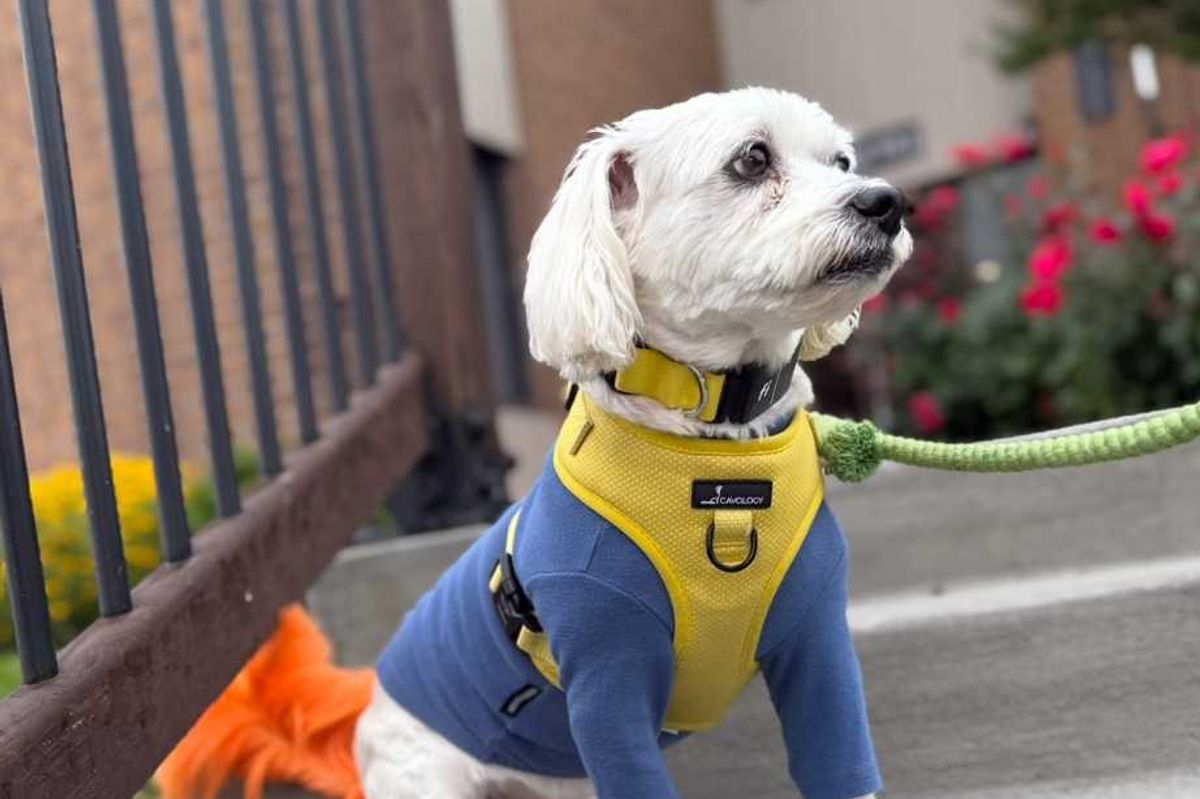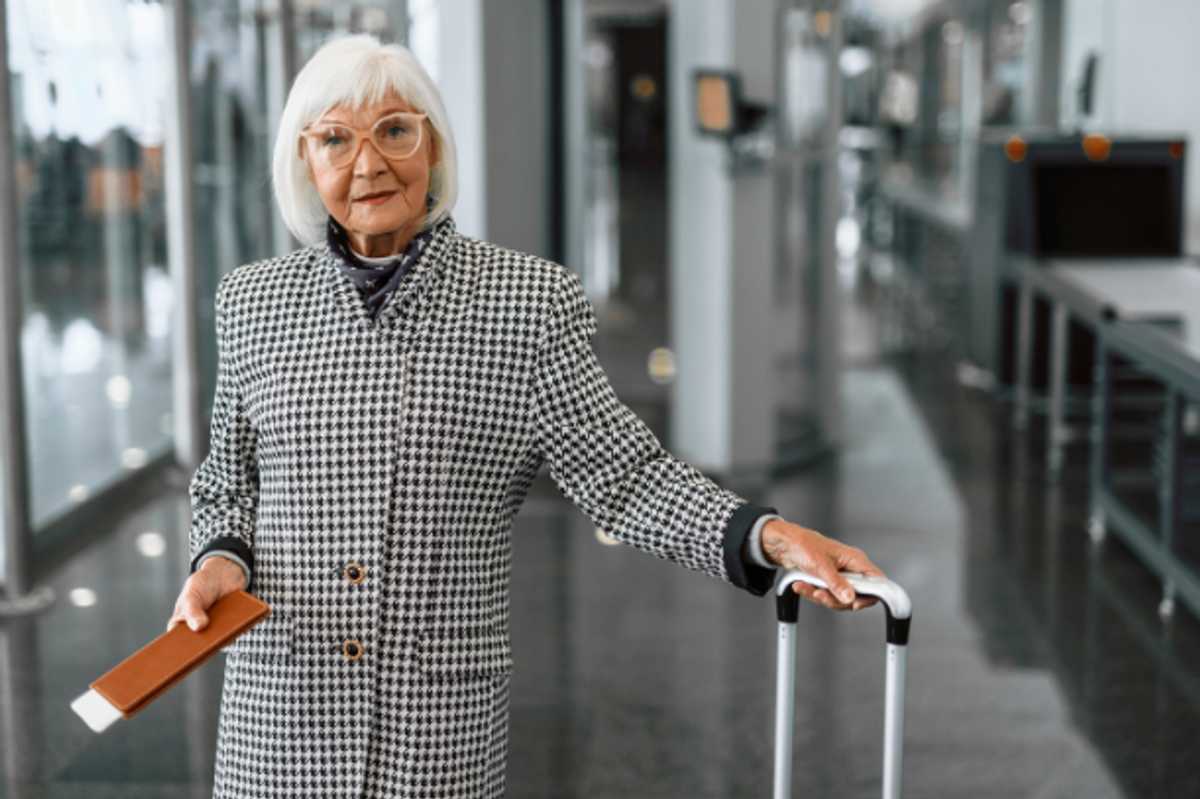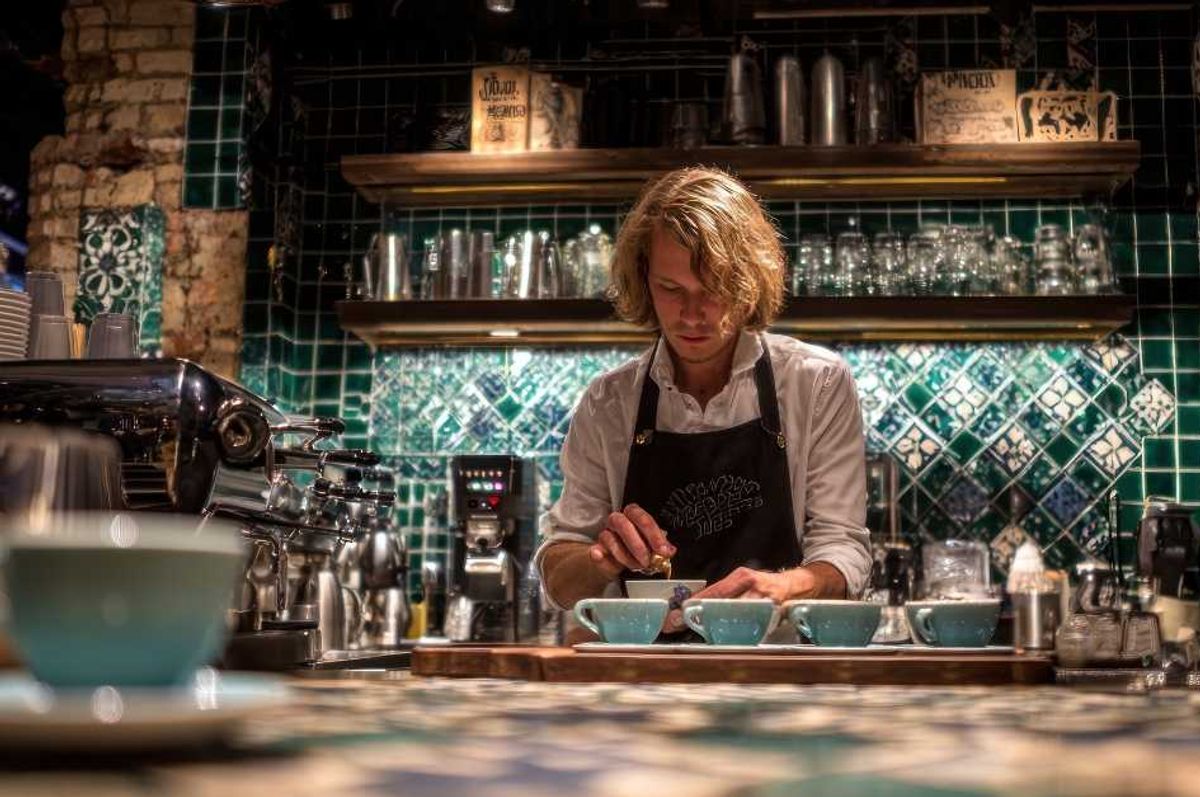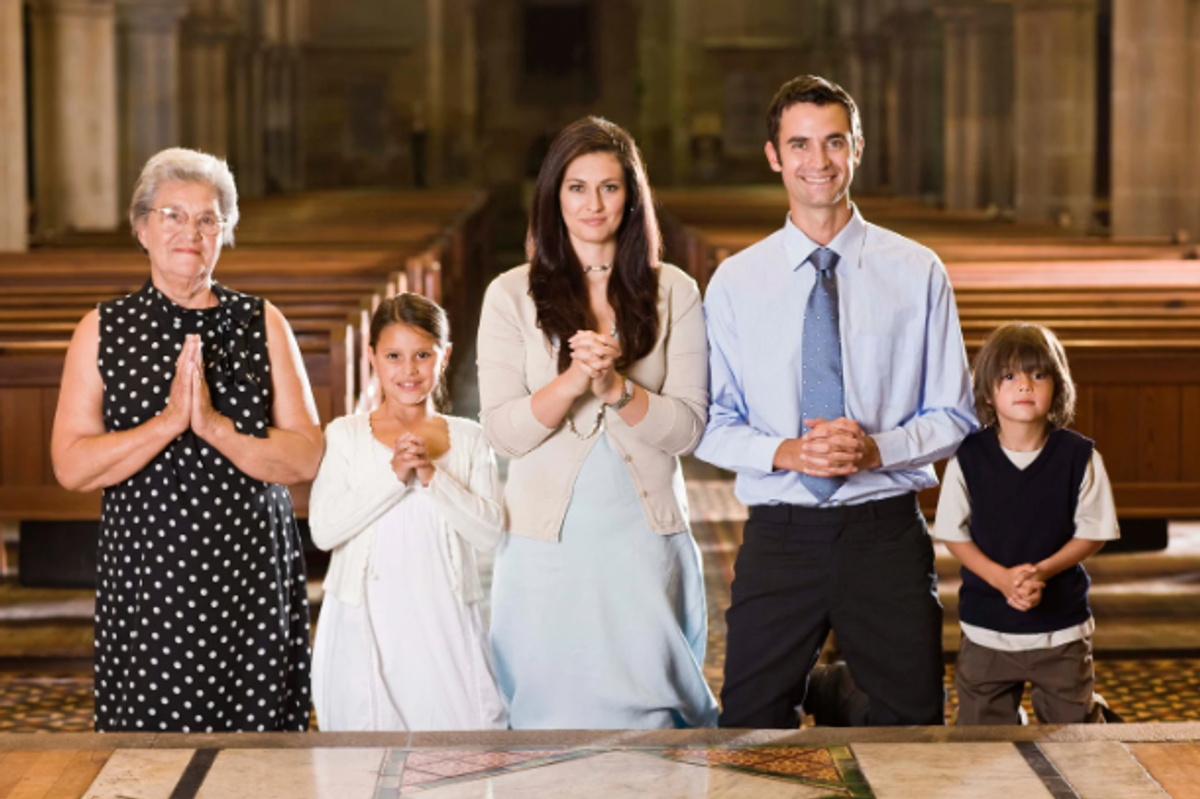How often do stories about CEOs leave you with that warm and fuzzy, thank-God-for-them feeling?
If you're like me, you're probably already channeling a pissed-off Clark Griswold.
GIF from "National Lampoon's Christmas Vacation."
Between the massive CEO-worker pay gap, the lack of accountability of many top executives, low employee engagement, and an obvious need for more companies to adopt sustainable practices, maybe our vitriol isn't so misplaced.
But is it fair to assume the worst of all of them?
2015 wasn't an entirely bad year for CEOs in the news.
From my goodness-seeking perch, I spotted a number of stories of business leaders making efforts small and large to do some good this year. Here are nine examples:
1. Aetna CEO acts on reports of employees on food stamps.
Photo by D Dipasupil/Getty Images.
Health care company Aetna is #49 on the Fortune 500. Last year, it logged over $2 billion in profits. But success wasn't "trickling down."
Employees in Aetna's call centers were so underpaid that they needed food stamps and Medicaid to get by. That's not fair, especially given that Aetna's financial position was in part bolstered by public investments through Obamacare.
Instead of fighting to keep workers poor and profits higher, CEO Mark Bertolini raised the company's minimum wage to $16 an hour, which benefited 5,700 employees.
2. Virgin CEO steps up for moms and dads.
Photo by Oli Scarff/Getty Images.
Having a kid should be a joyful time in parents' lives, but many quickly face the cruel reality of having to maintain an income to support their growing families. And parental leave policies vary widely throughout the world.
As a new shared parental leave law went into effect in the U.K., offering parents of newborn or adopted children a portion of their salary for up to one year, Virgin CEO Richard Branson decided to take it even further.
In his London and Geneva offices, he introduced a policy that moms and dads of newborns or adopted children can share a full year of parental leave at 100% pay.
3. Netflix CEO approves parent-friendly policy.
Photo by Michael Kovac/Getty Images for Vanity Fair.
Netflix's Reed Hastings approved a policy offering up to a year of fully paid parental leave. So should a "Netflix and chill" night lead to parenthood — or a decision to adopt, anyway — a lot of Netflix employees are resting assured the company has their backs.
"What we're trying to do is earn loyalty and trust — that they really care about Netflix, in addition to caring about their family," Hastings said at The New York Times' Dealbook conference.
Like the Virgin policy, Netflix's only covers a subset of the company. It applies to employees of their streaming division, not their DVD division, which is a bummer. But it's a start.
4. Patagonia CEO calls for "radical" environmentalism.
Photo by Mandel Ngan/AFP/Getty Images.
At the helm of outdoor clothing and equipment company Patagonia, Rose Marcario is continuing founder Yvon Chouinard's legacy of sustainable business practices and finding ways for the company to be even more eco-friendly — even at the expense of sales.
In addition to sending a portion of its sales to environmental causes, Patagonia set up the largest garment-repair operation in North America and offers customers home-repair tools and channels to donate or recycle their worn Patagonia gear.
The White House named Marcario a "Champion of Change" for her leadership on sustainability. Despite the presidential nod, Patagonia said "thanks but no thanks" to the Trans-Pacific Partnership, a free trade agreement championed by President Obama.
Marcario wrote that the deal "advances the interests of big business at the expense of the environment, workers, consumers, communities and small businesses."
5. Columbia CEO lends a ride to three proud moms.
Photo by Adrian Pingstone/Wikimedia Commons.
When American travelers Anthony Sadler, Alek Skarlatos, and Spencer Stone bravely subdued a gunman on a train to Paris, their families back home were relieved they were safe and thankful that they could save so many lives.
The French government announced they would honor the men with their highest award for heroism, the Legion of Honor — something a mom would obviously want to be there for. Unfortunately, theirs didn't have the means to travel for the occasion.
Then along came a CEO. At the thoughtful suggestion of his personal pilot, Doug Perrill, Columbia Sportswear CEO Tim Boyle swooped in with a generous offer for the three proud moms: a free ride to Paris on his private jet.
6. University head donates six-figure bonus. Again.
Photo via University of Cincinnati, used with permission.
For the third year in a row, Santa Ono, president of the University of Cincinnati (not technically a CEO, but same difference), forwent his bonus, opting to send that extra cash to programs supporting first generation, LGBTQ, and low-income students, as well as local high schools and community groups.
His 2015 bonus was $200,000 — almost four times the country's median household income and 38% of his more than half-a-million-dollar base salary, which would have grown had he not also refused his raise. And who can argue? The man knows he's got it good, and he wants to pay it forward. Cheers to that.
7. CEO sells big without forgetting who made it possible.
Photo by Johannes Simon/Getty Images.
Nevzat Aydin built his online food delivery company, Yemeksepeti, over 15 years. He sold it this year for $589 million. (Apparently, Turkish foodies like home delivery as much as Americans do.)
But Aydin knows he couldn't have done it without his 114 employees. "Yemeksepeti's success story did not happen overnight and many people participated in this journey with their hard work and talent," he said in an interview with CNN Money.
So he put his money where his gratitude was, doling out $27 million in bonuses (an average of $237,000 per employee), which must have been life-changing for many, considering most of his employees earned just $12,000–$24,000 a year.
8. CEO uses psychological research to invest in employees.*
Photo by Dan Price/Wikimedia Commons.
Dan Price, CEO of Gravity Payments, read a Princeton study that looked at the impact of salary level on emotional well-being. The researchers identified a salary level at which participants exhibited peak happiness: $75,000. Price decided it was worth a try.
He initiated a plan to raise their minimum salary to $70,000 over two years, funding it in part by cutting his own exorbitant salary of $1.1 million to — you guessed it — $70,000. "I want to be a part of the solution to inequality in this country," Price told CBS News.
*However, this sunny story of Price as a Robin Hood for Corporate America is now overcast with legal intrigue, calling into question his motives for the salary decision. Regardless, a lot of Gravity employees are in much better financial positions than they were a year ago.
9. CEO of outdoor sports retailer blacklists Black Friday.
As most U.S. retailers corralled people in their doors to kick off the holiday shopping season, Recreational Equipment Inc. (REI) CEO Jerry Stritzke and the cooperative's leadership urged us to go outdoors.
The company closed for Thanksgiving and Black Friday so their employees could be with family and friends. And they launched #OptOutside, an anti-marketing campaign encouraging customers to enjoy nature and inspire others to do the same by sharing their experiences on social media.
It worked on me — and at least 1.4 million others.
Red Rock Canyon on Black Friday 2015. REI also happened to be the first retailer I visited for holiday shopping.
It's encouraging to see business leaders doing some good in the world, but we should expect more.
Hopefully we'll see more of them in the headlines for the right reasons in 2016. As for us, here's hoping we push back when companies act against our interests. There's a resolution worth sticking with.
GIF from "National Lampoon's Christmas Vacation."
- Dan Price wants to change Giving Tuesday by putting money into the hands of his employees - Upworthy ›
- Gravity Payments CEO raises minimum wage at company to $70K - Upworthy ›
- Dan Price is marking Giving Tuesday by putting donation money into the hands of his employees - Upworthy ›
- Someone named ‘Jeffrey’ or ‘Michael’ is more likely to be a CEO than a woman. - Upworthy ›
- It turns out your cat actually does love you, a new study claims - Upworthy ›









 Theda Bara
Theda Bara 
 Comparison is the thief of joy.
Comparison is the thief of joy.  Things don't care if you throw them away.
Things don't care if you throw them away.  You might be the villain in someone's story.
You might be the villain in someone's story.  We judge others differently than how we judge ourselves.
We judge others differently than how we judge ourselves.  Nobody is paying attention to you (and that's a good thing).
Nobody is paying attention to you (and that's a good thing).  We accept the love we think we deserve.
We accept the love we think we deserve. 
